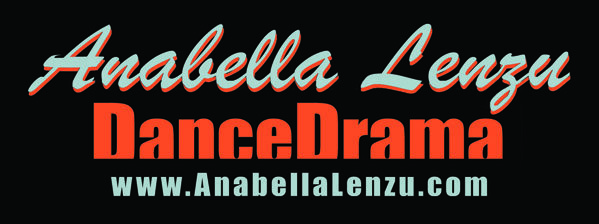“through me and through my daughter”
Alice Farley
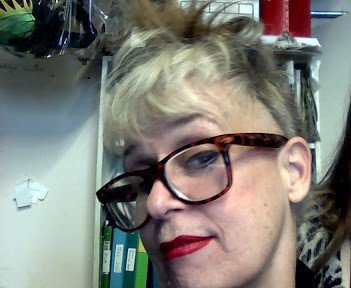
Interviewed on November 4th, 2022
by Anabella Lenzu
Anabella: Thank you so much, Alice, for taking the time for this conversation from mother to mother. Let’s start from the beginning, a triple espresso. I would like to ask you how you define what it is to be a “good mother”.
Alice: What is good? It's when you jump in the river. Is it a good river, or is it a bad river? It's actually just a river. And I don't think you get to make that choice even when your house gets washed away. This was not a conscious decision for me – to have a child with my partner. I was already 45, and it just happened to us. Then we agreed and got pulled into it. But what made it good or bad? I suppose there's something about the discipline you have and the direction of your life. When you're older, a lot of your outlook is already determined.
Having kids really woke me up. I've been thinking about this a lot – the essential selfishness that usually defines an artist. Especially in choreography, we're compensated very rarely in a very competitive world and sometimes our work is suspect in what is conceived of as a non-political “art” world. There is the general question of why are you doing this and why is your work important? Then all of a sudden there's someone else coming into your world.
The thing about being a choreographer, or a theater artist in this particular culture, is it's such an outsider thing to do, that it can become almost messianic for the artist. Meaning I have to do this and I have to find this particular gesture. This obsession of I have to find this color yellow or I won't have a chance of opening some chink in the wall, to make people understand something and give some value to this. This child does not have a choice in getting pulled into this turmoil that you are going to provide. I remembered this important dream I had when I was very pregnant. There I am going up a hill in the forest, very rocky, full of stones, and I'm pulling behind me this little child, and they're bumping and bumping as I go up this hill all the way to the top. Even at that moment, it was a revelation that you have pulled this other being into this journey whether they want to or not. The love that you feel immediately and recognition, sort of seals their fate: they're going to have to live through this. Certain ideas that you have about free choice don't really apply to them. That's being a child to anyone.
Anabella: Wow. Beautiful, what a strong dream Alice, but beautiful imagery. It’s normal, I also remember having very weird dreams when I was pregnant. It's all your hormones, your life is upside down, spiritually, emotionally, physically, and intellectually. How would you define what is to be a quote-unquote “good artist”?
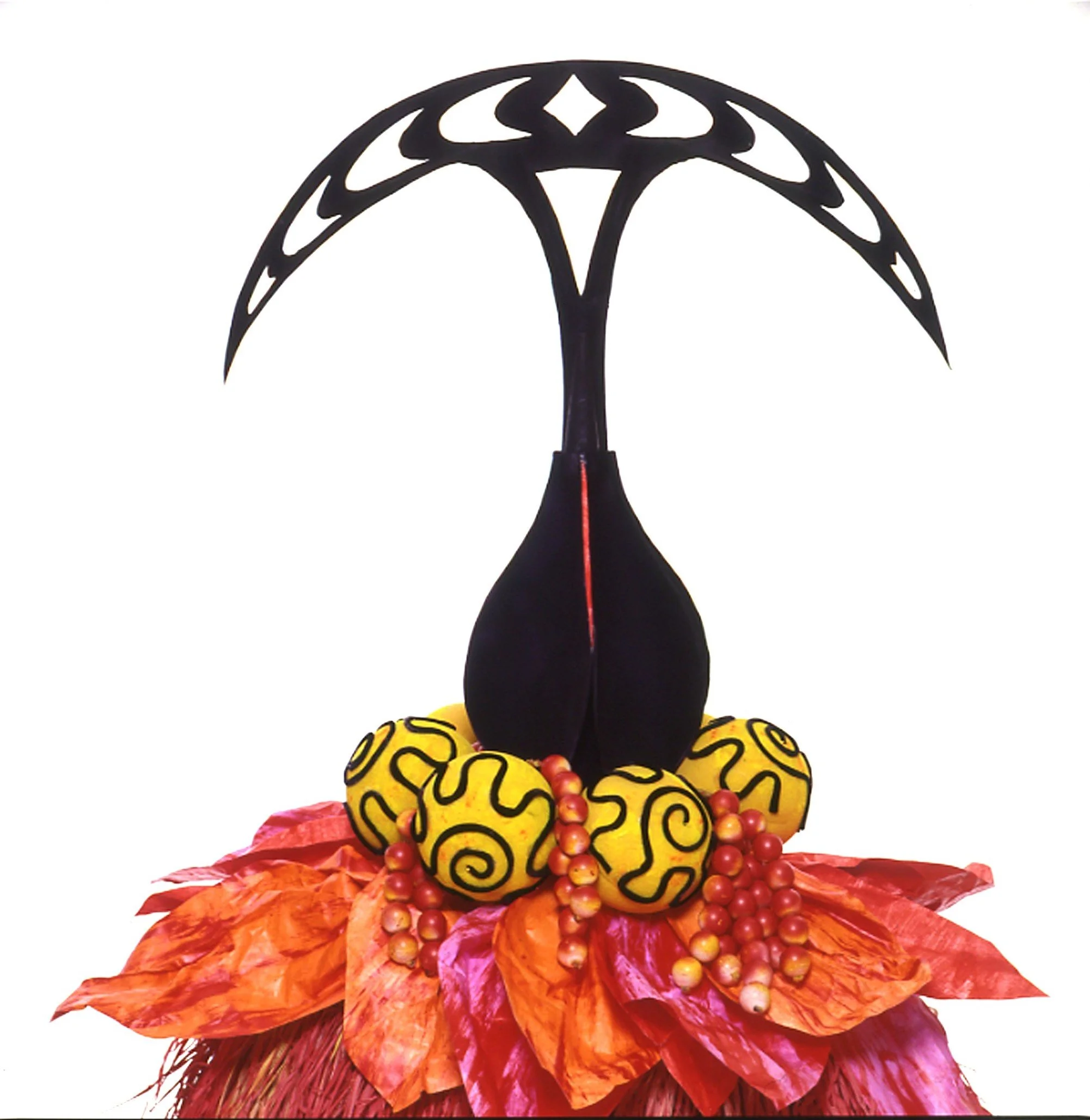
Alice: Well, that's another thing I was thinking about contextually in this country. There's the romantic notion of forging your own path — a pioneer outlook. These pioneers wanted to leave the community behind, especially for the women. They drag everybody out there where there are no doctors. Let's go out, let's go out where no one has been before. And for all the goodness, invention, and experimentation, there is a downside and a lack of realization of community in this, particularly this culture and in the dance culture. There are so many societies that maintain dance traditions from thousands of years ago, whereas modern dance sought to forge a new path, at least as I saw it. This was our attempt to create a new dance tradition. These choreographers we respect, Isadora Duncan, and Martha Graham, were building their own vocabulary, and language. For a lot of us that really moved us. I remember seeing Limón’s Othello and the Moor’s Pavane (1949) and realizing I knew Othello, I knew the play, and this was so much beyond. This was a language I felt to the bone and I realized I didn’t want to be that, but it was a path that I saw. So there was this idea that the metaphor could be more truthful than the real that gave me access to knowledge. I found it over and over in my life, especially doing things outside of the established theater, in the street or in a landscape piece. When you run into people, an uninitiated audience, an unexpected audience and they would recognize some kind of truth in things that weren't taught; it was body recognition, the language of the body.
I create costumes and sculptures for the dancers’ bodies to inhabit, the unknown yet familiar shape is the goal. So anyway, there's such an oppressive commercial layer imposed now – what is called “art” in culture and how do you break that down? What is fought for and who pays for it and what is a legitimate discovery? Legitimate communication is the kind that hasn’t been manipulated and it's so hard to find that, you have to keep digging underneath. So sometimes, for me, that's been a really lonely path. It sounds like you have found a community here with dance. In the past, when I first started dancing, it was a much more minimalist time and I was not interested in minimalist dance.
I got a Bessie award and at that time in 1990 or 1991, the master of ceremonies was saying, “We have this great dance community” and all this and that. When I got the award, I couldn't help myself. I had to say, “Well, I'd never really felt the community here.” I really felt I was always on the fringe, and that there was a certain self–self-congratulatory atmosphere and a similar aesthetic restricting so many of the people who were calling themselves a dance community. I think that’s changing now with a greater inclusion of different forms of dance. It wasn't a community that felt like a family or a partner at the time. My daughter was born in a small town in Mexico and in that place there is community. It’s a different kind of community, rather than a group of striving artists who were trying to function as a “community”. Of course, there is so much competitiveness everywhere. But sometimes real-life necessities demand kindness, or at least recognition of the other.
Anabella: Survival!
Alice: It's always about survival, right? The other tradition here, especially in New York, is families scattering. When I had my daughter in Mexico, there were people around.
That’s how people did it when you were lucky— you had 10 aunts around and you had cousins. You cannot do it alone. It was interesting when you have a company too. At times I had quite a few people and you’re touring, so then you’ve made your own community. Even though I didn’t have the support of the greater “dance community” I had my company and that was a dance community. For my child to get to know the company members as artists was a fantastic thing.
Also, you have to recognize your position as a choreographer or position as a director. You are basically a tyrant and as that child is walking into these situations, so is your partner and everyone else. It's hard to pull back and say don't go right, don't go left.
Anabella: This is very normal in my house. One time my husband said, “Can you stop choreographing inside the house?” because I was telling everybody, “You have to do this, and you have to take the bus, and you have to do the dishes.” That's what we do, we give orders!
Alice: It's also different. A woman is — it'd be interesting to hear your discussions with men who are also parents and their experiences.
Another choreographer friend of mine said, “The people they should be asking about this are the children. How did it work out for you?” Choreographing a dance is like watching someone grow their mind and body in a way. It's such a gift that our work is grounded in creating and I'm finding this poetic interpretation of the world.
Anabella: Alice, how did you manage it all? Now your daughter Tuli is 26, so how did you manage to have this balance between being a “good mother” and a “good artist”?
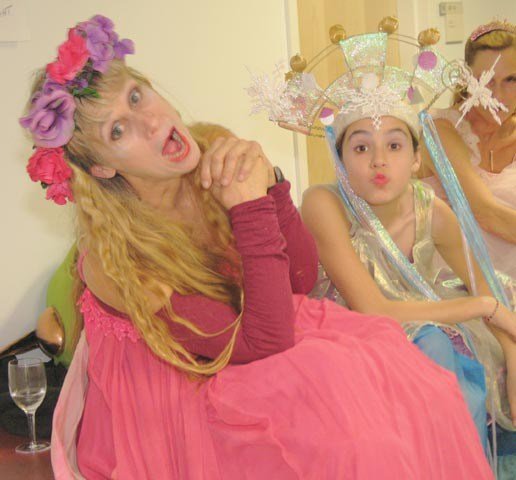
Alice: I don't know how well I did on either of those, but like I said, we just jumped in the river.
I could not force her to do anything. I’m lucky that she always been interested in art and that she has embraced it as a way of moving through life. She says that she feels happy that having artist parents showed her that art was a viable way of living, whereas other people are often taught that if you choose art you’ll starve. She has many interests but she’s a born performer and visual artist, I know that comes through in all of the fields that she works in the way that she interacts with others and her innate design sense.
When she was growing up I scaled down my time with my pieces. She was six months old and we had a show at the public theater and I thought, “Why am I doing this now?” At that time I didn't understand the timing. I didn't even understand my own work and that the process didn’t end at night after the rehearsals. Especially if it was a collaboration, there had to be time to ruminate on where the work was going. And the child is a fountain of information and needs all of their own. Is there enough energy in the world for that? (Every working mother in all the world has always said.).
I get so aggravated by the part of technology that says there is no one moment in time that's more important than any other. You can always take that, keep it, and play it later. You can hear the news later. You don't have to hear it at 6 o’clock. It almost implies that there's no worth in a specific moment though we certainly know there’s a sequence of making a dance or piece of art. Yes, there are different times that are important, like moments in a child’s life that are important, you’re only an infant once.
I was advised by certain people, who should have known better, professional people. I told them that my child would only be six months old at the time of a major show. Then they said, “Oh no, don't worry, just get some good help.” But it's not like that actually. It's not, there's a timing aspect that we're supposed to be aware of. It was a good wake-up call. Timing is the most important thing in sharing your life with a partner. Sharing your life with a partner is one thing. Sharing your life with a child is another. It’s not filling every need, but it is helping them walk the zigzag path and discerning what they really need at this second and what is going to be helpful.
Anabella: How do you feel since having Tuli at 45? How did motherhood change your way of perceiving art? How were you as a choreographer and dancer before Tuli and after Tuli?
Alice: She had a big influence on it. She was always so creative and she was almost an advisor to me in many ways because I felt her vision was very clear. Plus we were alone together a lot and she had seen so much of my work.
I feel that the dance inhabits the costumes; they became characters because of the shapes that are formed and how that dictates the movement- and Tuli would understand that, even without dance training. She did some dance classes and learned circus skills and acting but it wasn’t the formal training that others had, yet she could completely become a character so easily. And that would be a model to show to other dancers. I guess I did stop traveling as much after she was born. I kept having to remind myself that it was not necessarily what my daughter wanted. Traveling was my idea and sometimes that was my fantasy of my childhood. We got to perform in Hong Kong, in Istanbul in a palace with a chocolate forest and we got to do things like that, but I thought to myself maybe that’s not exactly what she really wanted. In the end, we loved it. But you can't say that it was definitely a great thing you did for your child. Only they can say that.
What I am comparing it to is when I grew up. My parents ignored us in the 50’s way. We were out in the country and, for example, if I wanted to build a playhouse, I would just go and find things to build a playhouse. When Tuli wanted to build a playhouse, she'd come into the studio and I'd already be working on a different playhouse myself, then she would have to go around that to make her own. She didn't want to take my advice about the architecture of her playhouse or her costumes or anything else, but that weight of your parents is real. You were talking about someone you interviewed, who didn't want to become a dancer like their parents. That’s certainly how I felt with my parents. My father was a writer. They lived in Florida. When I decided to go to college, I went to Oregon because I wanted to get as far away as possible. In many ways they were wonderful parents, but you have to distance yourself, obviously.
In the arts, for those of us who are embedded in it, it feels like the beauty of the world. When my daughter would put on some of my old costumes and, without having seen the dance or video or anything, she would start doing the same gestures. It’s super terrifying.
Anabella: Alice, I would like to talk about the female lineage because I purposely am not interviewing men in this project. Of course, there are some men, choreographers/dancers that have kids, but this is a feminist project. I want to talk about this female lineage, between you and Tuli and your mother and your great-grandmother.
Alice: On my mother's side they were mainly French-German. A lot of the relationship was quite close to any kind of dialogue with a child. In my grandmother's family, the first ones here were farmers and then teachers, then they all became teachers. My mother was very interested in political science and she came here to go to NYU, but she was also working. She wanted to get away from her family. Her father was very strict, she became a model so she had her own money. There was a great artist community in New York and there were these writers, so she got involved with writers. Something I realized later in life is that she didn't really confide in me about her past. It was a very repressed time. When she died and I was giving away all her books, I realized that she had been really interested in Victorian times. That was so strange to me, but that’s probably why my name is Alice and why she read me the Alice in Wonderland books every night. In spite of having 4 kids, I still got that from her. She was very fond of limericks and things which are very nonsensical like Louis Carroll and all of that.
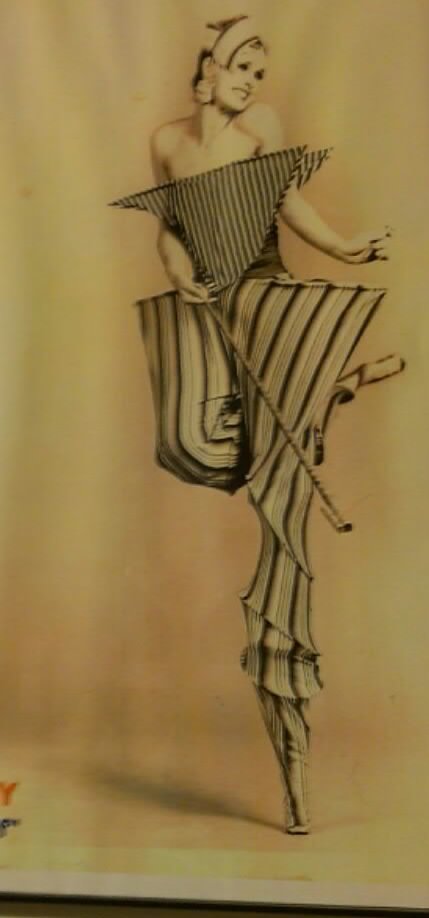
I didn't realize until she had died and I went through her notebooks how much she did write. My father was a very successful writer. She wanted to write herself, but she was really pushed down by these 4 children. She wrote travel articles, but she really had stories that she couldn’t get published. Her husband was so successful that I think in a way she felt she was in his shadow, especially after being applauded in her youth for her intelligence and her academic career. She never told me that she didn't get to do what she wanted. She was not very open. She didn’t want to share the details of her life. My father was too busy and he never asked. It was also inhibiting for me the fact that he was so successful because it made me think that if you are a good artist, you're supposed to be successful. He didn't say that, but there was that edge. Still, he always loved and supported me. They both supported me in their ways, but I never got that conversation with my mother. I ended up learning so much more from her letters later on about what it was like for her. She had 4 children which is a lot, not as many as some other families, but it’s still a big deal. You lose hours; there's no way you don't lose hours.
Anabella: What is it to be a female in the world? That’s going from your mother to yourself, to your daughter? Like standing up for the things that you want, as you said about your mom being a little bit oppressed, so what are the things that you will pass or have passed onto Tuli?
Alice: Well, I tried to, she always tried to get us all to stand up always. I was very, very proud of Tuli. After 9/11 we were near Union Square where there were incredible meetings every night in the park, and she was the first one to get chalk and write on the pavement about what had happened. We would get poems and put them up on the fences and she saw that, I recognized her political activism at that point — she wrote letters to Bush advising him not to go to war. “...even though I'm just a child, President Bush…” she was very strong in that way. My mom always had artistry but that revolved around her home, it was a subliminal grace in the garden, in her wood carving and crocheting, and in her design choices, I see that now she had this artistry that she presented to us, without being part of this competitive world of professional artists. My dad was considered the artist and she was just mom, but really I know that she was a subtle and beautiful artist, I appreciate this more now. She had an amazing eye and a dancer’s grace. I see how this flows through me and through my daughter too, it’s about an artistic sensibility in the way of living, improvising, and creating the world around us. We always talked about Tuli “being her own girl” and that was something important for me, I always wanted her to think for herself and not feel forced to follow my way or anybody’s path. The best thing I ever taught her was evidenced when she was at school one day and her pants split open in the back she just didn't even take a beat and she just whipped off her sweater and tied it around her waist and went on with her day. And I knew that was something she picked up from working with costumes.
The accidents are your artistry. When you work with props and costumes and any kind of theater, something's going to go wrong every single night. You better be ready. That's the main thing to teach. I thought that was the most valuable thing.
Alice Farley is a choreographer, dancer, mask maker, costume designer, and creator of dance theater. She approaches designing and making costumes and masks as a form of choreography held in time. Her unique works, both for site-specific environmental landscapes and theaters, combine magic illusions with circus artistry, kinetic puppetry, sculptural costuming, and choreography. Founder in 1993 of Looking Glass Productions and artistic director of Alice Farley Dance Theater in New York, her work has been recognized with the “Bessie Award,” numerous fellowships from the National Endowment for the Arts, the Cary Trust, Meet the Composer, the Jim Henson Foundation, and more. For over twenty-five years she has created and produced innovative dance theater at leading venues in the U.S., Canada, Europe, the Caribbean, and Asia, including the Public Theater (with Pulitzer Prize-winning composer Henry Threadgill) and La Mama Theater, New York; Whitney Museum, Guggenheim Museum, Philadelphia Museum of Fine Arts, and Andy Warhol Museum; New Music America Festival (with composer Peter Garland); Aruba International Dance Festival; Quebec Festival d’été; Toronto Harbor Front Festival; Singapore Arts; and elsewhere. She assisted in designing concepts and illusions for Cirque du Soleil in its initial years. She has collaborated with surrealist groups in San Francisco, Chicago, and New York, and especially prizes her work and associations with poet Philip Lamantia, playwright and poet Radovan Ivsic, writer, poet, and curator Annie Le Brun, and artist and writer Eugenio F. Granell. She is a graduate of California Institute of the Arts, studying with Bella Lewitsky. Donald McKayle and Mia Slavenska, and with the Martha Graham and Jose Limon companies. She lives in New York and Isla Holbox, Mexico. http://alicefarleydancetheater.com
Anabella Lenzu: Originally from Argentina, Anabella Lenzu is a dancer, choreographer, scholar & educator with over 30 years of experience working in Argentina, Chile, Italy, and the USA. Lenzu directs her own company, Anabella Lenzu/DanceDrama (ALDD), which since 2006 has presented 400 performances, created 15 choreographic works, and performed at 100 venues, presenting thought-provoking and historically conscious dance-theater in NYC. As a choreographer, she has been commissioned all over the world for opera, TV programs, theatre productions, and by many dance companies. She has produced and directed several award-winning short dance films and screened her work in over 200 festivals both nationally and internationally.
